Thanks to the long development time of Mary Sue’s Character Casino, I didn’t beat as many games as I usually do. Meanwhile, my backlog has grown in leaps and bounds. As part of this blog’s revival, the backlog updates will return; expect the 2022 edition in about a week. For now, though, it’s time to look back on my favorite games in 2021.
As usual, every game here is one I’ve beaten (or played extensively, in the case of “endless” titles) during the past year, regardless of release date. For each game in the top ten, the title, developer/author, platform(s) I played it on, and the release date for said platform in my region has been included, along with a little bit about why I found this game so memorable.
Honorable Mentions:
• Solitairica – For its addictive and fun fantasy twist on a classic solo card game.
• Gato Roboto – For its pleasant and crispy monochrome graphics, and for being a fairly well-rounded Metroidvania.
• ISLANDERS – For its chill puzzle-flavored take on city building.
• Pony Island – For its creepiness, humor, and unexpected moments.
• Kirby: Planet Robobot – For being a damn good Kirby game, and a mech suit that feels too well realized to be merely a gimmick.
 Surviving Mars
Surviving Mars
Haemimont Games | Windows | 2018
The surface of Mars is a far cry from the sandy Caribbean shores that Haemimont previously explored, but it proves to be just as fertile a ground for a deep, engrossing city builder. Said builder is Surviving Mars, which puts the player in the shoes of a commander of a decades-long colonization mission to the Red Planet. There are a diverse number of factions, dome styles, building types, vehicles, people, and even background music options to play around with, especially when DLC is taken into account, and the optional Mysteries storylines add a bit of structure to what would otherwise be completely freeform play.
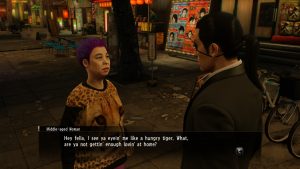 Yakuza 0
Yakuza 0
Ryu ga Gotoku Studio | Windows | 2018
Open-world games are, and remain, intimidating to me, with their freedom to explore and try out new things at one’s leisure, and Yakuza 0 is no exception. There are so many things to do in this game, from playing mahjong, pool, or Space Harrier, to singing karaoke, to fishing, to (my favorite) running a hostess club. In terms of story, the meat lies in a hard-boiled tale of false accusations and power struggles in Japan’s 1980s-era underworld, while the soul lies in the sidestories. Hunting the latter down can be a bit of work, but helping out everyone from Tokyo’s nicest dominatrix to a guy who just wants to look cool while crossing a famous Osaka bridge is a guaranteed way to put a smile on your face.
 FUSER
FUSER
Harmonix | Windows | 2020
More than a mere rhythm game—though it certainly is one, especially in the campaign mode—FUSER is a musical playground where disparate parts of songs can be mashed together and remixed into new forms. Standard audio-mixing tools such as pitch shifting and BPM adjustment are gamified here, and though the full suite of controls is complex, the basic act of combining parts of songs isn’t, plus the campaign doubles as a tutorial which eases you into all of the features. The base game comes with 32-bar long clips of dozens of hit songs, including memey favorites “All Star” and “Never Gonna Give You Up”, and, as is standard for most any Harmonix title, there’s an absolute boatload of DLC. On PC, FUSER has dropped in price considerably since I had bought it; it was worth it then, and is definitely worth it now.
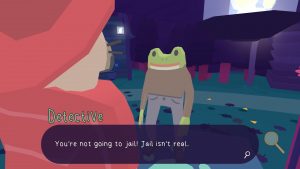 Frog Detective 1 & 2
Frog Detective 1 & 2
Grace Bruxner & Thomas Bowker
Windows | 2018, 2019
There was no way I would’ve been able to pick one over the other, so both of the available parts of the Frog Detective series make up one entry on this list. The Haunted Island, A Frog Detective Game and Frog Detective 2: The Case of the Invisible Wizard are short point-and-click adventures which delight with their goofy humor and overall good nature. The puzzles lack the frustrations endemic in older adventure games—and still found in some modern ones—and the stories are lighthearted, breezy affairs. If you enjoy wholesome silliness but don’t want a game stuffed with tired memes, Frog Detective is for you. The third and final game in the trilogy, Frog Detective 3: Corruption at Cowboy County is due out sometime this year and will hopefully be just as charming and funny as its predecessors.
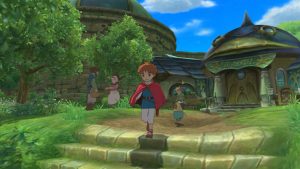 Ni no Kuni: Wrath of the White Witch
Ni no Kuni: Wrath of the White Witch
Level-5 | PS3 | 2013
It’s been a long time since I’ve liked a Level-5 game as much as Ni no Kuni. A collaboration with the famed Studio Ghibli, this game plays to Level-5’s strengths while tamping down on some of the studio’s more annoying quirks. The story, about a young boy who travels to another world to try and save his mother’s life, deftly balances humor, sweetness, and drama, and contains some pretty inspired twists. The crafting system is deep, but not as complex and overdone as in, say, Rogue Galaxy. As is typical for Level-5, the game looks absolutely gorgeous. It’s hard to believe that someone felt that it needed a “remaster” for modern consoles, but if it gets more people to play Ni no Kuni, that’s fine with me. Either way, be assured that its original PS3 release still holds up very well.
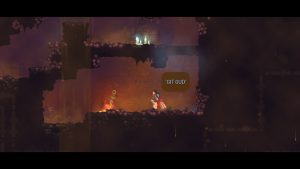 Dead Cells
Dead Cells
Motion Twin | Switch | 2018
This slick action roguelike delivers with a wealth of weapons to discover and unlock, sprawling and diverse levels, and animations and sounds that enhance the game’s momentum. A single, complete run lasts a little over an hour, but as is typical for this sort of game, mastering the moves and mechanics to get to that point takes much longer. It doesn’t feel like it, though, as it’s such a pleasure to play, enough so that reaching the end might seem bittersweet. Don’t worry about the story too much; it’s some shallow, hackneyed plot about a kingdom in ruins and controversial experiments that serves as little more than background flavor. Dead Cells has been updated many times over the years, and as of last May, which is when I reached the ending, the state of the game is rock-solid.
 Slime Rancher
Slime Rancher
Monomi Park | Windows | 2017
Joy and positivity practically radiate from Slime Rancher, a first-person game about harvesting poops—sorry, “plorts”—from smiling alien slimes of all types and shapes. The slimes all follow that ever popular “cute” template of two beady eyes set close to a “u” of a mouth, a style which is starting to feel overused, but don’t hold that against it. Slime Rancher is roughly comparable to various Rune Factory entries in terms of farming, crafting, and exploring, and can be just as engrossing. The story is suitably light: a tale of love and ranching which slowly unfolds through messages received and encountered while exploring the Far, Far Range.
 Third Place
Third Place
Mario + Rabbids: Kingdom Battle
Ubisoft Paris | Switch | 2017
I never thought I’d put a Rabbids game, much less a Mario one, in my top three. Even with my soft spot for Mario RPGs, it’s been years since one has impressed me this much. In a first for Mario RPGs, Mario + Rabbids is a strategy RPG, and instead of taking inspiration from Japanese mainstays of the genre like Ogre Battle or Disgaea, it looks and feels a lot like what I’ve seen of the modern XCOM games. Fortunately, this game doesn’t come with the XCOM series’ reputation of unfairness, and is in fact nicely balanced and way more fun than frustrating. The maps are exquisitely designed battlefields, with well-placed hills, pipes, and obstacles to encourage careful planning, and the chaotic and distinctively European flavor of the Rabbids meshes surprisingly well with the Mushroom Kingdom and its residents. There are a handful of annoying bugs in the later parts, a rarity for any game with “Mario” in the title, but despite those, there has been no finer RPG that I’ve played in 2021. Before the sequel comes out later this year, I really must make the time to play the first game’s DLC.
 Second Place
Second Place
Tetris Effect: Connected
Monstars/Resonair | Windows | 2021
To me and many other people, Tetris is the greatest game of all time. Tetris Effect might very well be the greatest iteration of Tetris. Truth be told, it is not the only Tetsuya Mizuguchi game I played last year. The other one was Lumines Remastered, which is a perfectly adequate block matching game with neat music and graphics (and some annoying ones), but not much more than that. Tetris Effect is more, and though part of that likely comes from the honing, over time, of Mizuguchi’s skills as a game creator (though there is still at least one level which is grating to the eyes), much of the rest is due to the strength of the core game. Adding on to this foundation are some new ways to play, including the Dr. Mario-esque minigame “Purify”, a personal favorite. In terms of the main campaign, the newcomer is the “Zone” mechanic, which temporarily freezes time and makes previously impossible moves, like clearing twelve lines at once, possible. Hydelic’s soundtrack is phenomenal, a mix of pop, electronica, and world music that’s as good as anything on the radio, and when combined with the game’s visuals, it’s a breathtaking experience. Incredibly, the actual “Tetris effect” never triggered after long play sessions, as it had for Tetrises past, but the graphics and music had a hard time leaving my head.
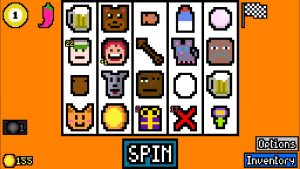 First Place – Game of the Year
First Place – Game of the Year
Luck be a Landlord
TrampolineTales | Mac | 2021 (Early Access)
Here it is, the Early Access roguelike deckbuilder that inspired this year’s Holiday Card. This fact alone pushed it past Tetris Effect to take the number one spot for 2021. Even just calling it a “roguelike deckbuilder” does it a disservice. The gambling implied by the term “roguelike” is made explicit here not only in its name, but by the slot machine mechanic that makes up its core. Your “deck” consists of beneficial items which the player can choose from a random assortment after each round of paying rent. Oh yes, and the plot is that you pay your rent to your capitalist pig of a landlord via slot machine.
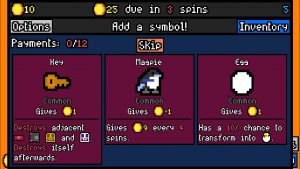 This rent goes up after a set number of spins on the slots, which can be manipulated by picking and choosing what symbols show up. The aforementioned items, as well as special temporary items called Essences, can add to your winnings depending on what symbols your slot machine has equipped. For example, the Egg Carton removes Eggs from the board, and pays you a set number of coins every turn based on how many it currently holds. Another item, the Wanted Poster, increases the payout for every Thief destroyed. As the game is still in development, the amounts and behaviors of items and symbols remains in flux, but there are a lot of both, and they interact with each another in fun and fascinating ways, making all sorts of strategies possible. It’s more enjoyable than any slot machine you could find in Vegas, and a much better use of your money. Even if you’re normally averse to games with the Early Access label, give this one a chance.
This rent goes up after a set number of spins on the slots, which can be manipulated by picking and choosing what symbols show up. The aforementioned items, as well as special temporary items called Essences, can add to your winnings depending on what symbols your slot machine has equipped. For example, the Egg Carton removes Eggs from the board, and pays you a set number of coins every turn based on how many it currently holds. Another item, the Wanted Poster, increases the payout for every Thief destroyed. As the game is still in development, the amounts and behaviors of items and symbols remains in flux, but there are a lot of both, and they interact with each another in fun and fascinating ways, making all sorts of strategies possible. It’s more enjoyable than any slot machine you could find in Vegas, and a much better use of your money. Even if you’re normally averse to games with the Early Access label, give this one a chance.